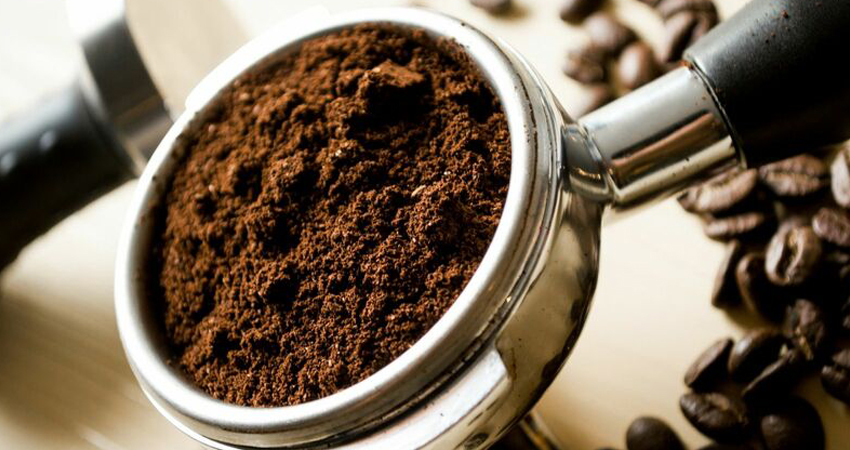Coffee Prices Rally On Strength In The Brazilian Real And Dryness In Brazil

May arabica coffee (KCK22) on Monday closed up +4.60 (+2.09%), and May ICE Robusta coffee (RMK22) closed up +8 (+0.37%).
Coffee prices Monday settled moderately higher, with arabica coffee climbing to a 1-week high and robusta posting a 3-week high. A rally in the Brazilian real (^USDBRL) Monday to an 8-1/2 month high against the dollar also boosted arabica prices. A stronger real discourages export selling from Brazil's coffee producers.
Below-normal rainfall in Brazil is supportive of coffee prices. Somar Meteorologia reported Monday that Minas Gerais, a region that accounts for about 30% of Brazil's arabica coffee crop, received 24.5 mm of rain or only 47% of the historical average last week.
The pandemic is easing in the U.S., which will lead to reduced restrictions that will be positive for social gatherings and coffee demand. The 7-day average of new U.S. Covid infections fell to an 8-month low Sunday of 29,892.
Coffee prices were on the defensive earlier last week, as arabica tumbled to a 4-1/4 month low last Tuesday on concern that Russia's invasion of Ukraine will derail the global economy. A slump in the economy could curb consumer spending and reduce coffee consumption as consumers tighten their belts and limit their visits to restaurants and cafes.
A bullish factor for coffee was last Monday's action by the International Coffee Organization (ICO) to cut its global 2020/21 supply estimate to a deficit of -3.13 mln bags from a previous estimate of a +1.2 mln bag surplus. In addition, the ICO lowered its global 2020/21 its global 2020/21 coffee production estimate to 167.17 mln bags from 168.88 mln bags and raised its 2020/21 global coffee consumption estimate to 170.30 mln bags from 167.68 mln bags.
Signs of tight global coffee supplies are bullish for prices. Arabica coffee posted a 10-1/2 year nearest-futures high on Feb 10. ICE-monitored coffee inventories fell to a 22-year low of 980,562 bags Feb 24. Also, ICE-monitored robusta coffee inventories fell to a 3-1/4 year low of 8,818 lots Feb 22.
Reduced coffee supplies from Colombia are bullish for prices. On March 3, the Colombia National Federation of Coffee Growers reported that Colombia Feb coffee production fell -16% y/y to 928,000 bags, and Feb coffee exports fell -23% y/y to 980,000 bags. Colombia is the world's second-largest arabica coffee producer.
The Green Coffee Association reported Feb 15 that U.S. Jan green coffee inventories fell -0.6% m/m and -0.8% y/y to 5,795,841 bags.
Shrinking global coffee supplies are a major supportive factor for prices. Data from Cecafe March 11 showed Brazil Feb green coffee exports fell -13.6% y/y to 3.44 mln bags. On March 1, the ICO reported that 2021/22 global coffee exports during Oct-Jan were down -1.5% y/y to 41.8 mln bags.
A bearish factor for robusta is larger shipments from Vietnam after Vietnam's General Statistics Office reported March 7 that Vietnam Jan-Feb coffee exports rose +3.4% y/y to 305,000 MT.
Arabica coffee prices are seeing support from expectations of lower global supplies due to unfavorable weather and supply chain disruptions. Drought and recent frost events have devastated Brazil's coffee crop this year and have curbed the growth potential for the country's coffee crop for the next two years. Conab reported Dec 16 that Brazil 2021 arabica coffee production fell to 31.4 mln bags, down -36% from 48.8 mln bags in 2020. The USDA's FAS projects that Brazil's 2021/22 coffee exports would tumble -27% y/y to 33.2 mln bags from a record 45.67 mln bags in 2020/21 as drought and frosts curbed coffee production. However, Conab on Jan 18 projected that Brazil's 2022 coffee production would recover by +16.8% y/y to 55.7 mln bags.
A supportive factor for robusta coffee is the smaller robusta supply from Vietnam after Vietnam's General Statistics Office reported Feb 10 that total Vietnam 2021 coffee exports fell by -0.2% y/y to 1.61 MMT. Surging freight costs and the limited availability of shipping containers have reduced coffee exports from Vietnam, the world's top producer of robusta beans and the second-largest overall coffee producer.


